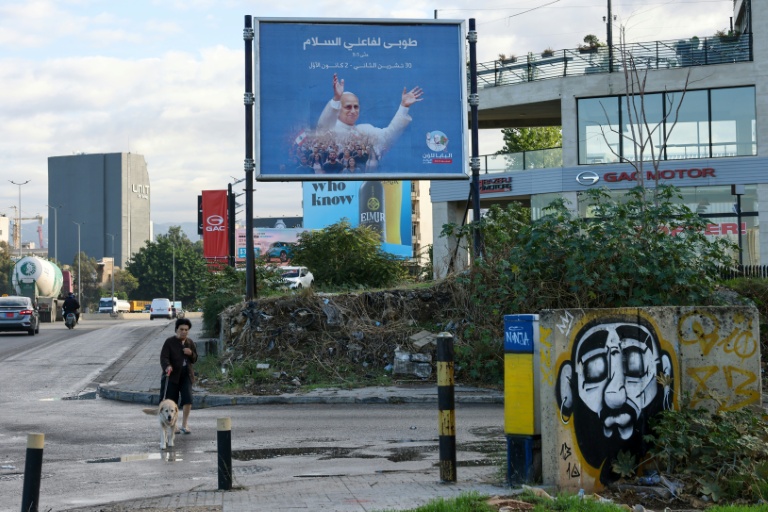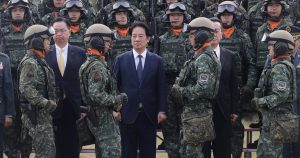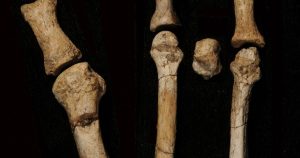Lebanese living abroad seek hope as they return for pope visit

Pope Leo XIV will visit Lebanon this week – Copyright AFP Anwar AMRO
Layal Abou Rahal
Rachelle Mazraani is travelling from Sydney to Beirut for Pope Leo XIV’s visit this week, one of many Lebanese at home and abroad who hope the trip will revive their struggling country.
After visiting Turkey, Leo is to arrive in Lebanon on Sunday for a three-day trip that includes an open-air mass at Beirut’s waterfront that organisers expect to draw 120,000 people.
He will also hold a special meeting with those aged 16 to 35 in Bkerke, north of Beirut, where the patriarchate of Lebanon’s Maronite Church is located.
“As a young Lebanese woman living abroad, this visit represents a deep reassurance that Lebanon is not forgotten,” the Australian-born Mazraani, 23, who works in sales and marketing, told AFP by telephone.
She is among some 500 young people from church delegations from several countries who will attend the pope’s youth meeting on Monday.
Leo’s visit “reminds us that Lebanon still has a mission in this region, a spiritual identity that cannot be erased by crisis or conflict”, she said, adding that it urges “us not to lose faith in who we are or in what Lebanon can still become”.
The small Mediterranean country has faced waves of crisis and conflict that have driven people to emigrate, with millions of Lebanese or their descendants now living abroad.
The number of Christians has plummeted, though no official figures are available as authorities have not held a recent census.
The community plays an important political role in multi-confessional Lebanon, the only Arab country with a Christian head of state.
Under the country’s power-sharing system, the post of president is reserved for a Maronite Christian.
– ‘Suffering deeply’ –
Billboards showing Leo with the slogan “Blessed are the peacemakers” have sprouted across the country.
It is a welcome message for a country still the target of regular Israeli strikes despite a November 2024 ceasefire that sought to end more than a year of hostilities between Israel and militant group Hezbollah.
But many fear a return to broader conflict.
“Lebanon has been suffering deeply, from ongoing crises to the most recent Israeli strikes, and our hearts are tired,” Mazraani said.
“While no single visit can solve everything overnight, I pray it inspires all of us… to come together to rebuild and to work for the Lebanon that we all dream of,” she said.
The pope is expected to emphasise interfaith dialogue and to call for peace during his visit to the Middle East, whose overall Christian community is diminishing.
The Lebanon visit “carries enormous significance”, said university student Gilbert Bakhos, 19, adding that it brings “unity and peace”.
He said he had travelled from Nigeria to be part of the youth meeting, which he called a “historic moment”.
“I hope to hear a message that motivates our country” to improve things “so my parents and family and our people can return”, he said, adding: “Nobody likes to live far from their country.”
Lebanon has declared a two-day official holiday to allow people to participate in Leo’s public events.
Some hotels are offering special deals, including discounts on bookings and transport to the mass.
– ‘Struggling’ –
Leo is visiting “at a time when even the Lebanese are afraid to come”, said Anthony Khadige, 33, a communications manager who was set to travel from Dubai.
“We live in a world in which we have lost hope… All we see is killing and bombing and blood,” he said, expressing optimism that the visit would “restore hope to people’s hearts”.
The largest foreign delegation attending the youth meeting is from neighbouring Syria, which has emerged from a nearly 14-year civil war after the December ouster of longtime ruler Bashar al-Assad.
Syria’s Christian community has shrunk from around one million people before the war to fewer than 300,000 due to waves of displacement and emigration, experts say.
In Damascus, Father Makarios Qalouma from a Greek Catholic parish said he was keen for the visit to bring “hope and peace” to Lebanon and Syria.
Syrian Christians’ participation is an important message that “despite all the crises and difficulties that Syrian society has been through, and particularly the Christians… we are still here”.
A deadly suicide attack on a church in Damascus in June has further stoked fears among the country’s minority community.
Qalouma, who is heading a 300-strong delegation including some 190 young people, said Syrian Christians were “struggling and fighting through all these crises to stay in our country”.
Malik Jabra, head of a Catholic group, said the delegation sought support for a people “who have suffered greatly — particularly Christians who are thinking of emigrating”.
Lebanese living abroad seek hope as they return for pope visit
#Lebanese #living #seek #hope #return #pope #visit





